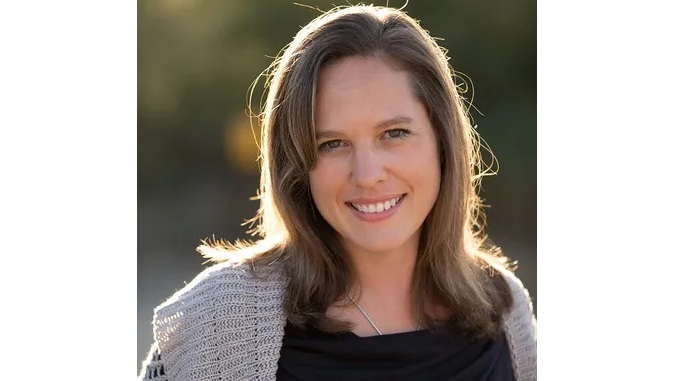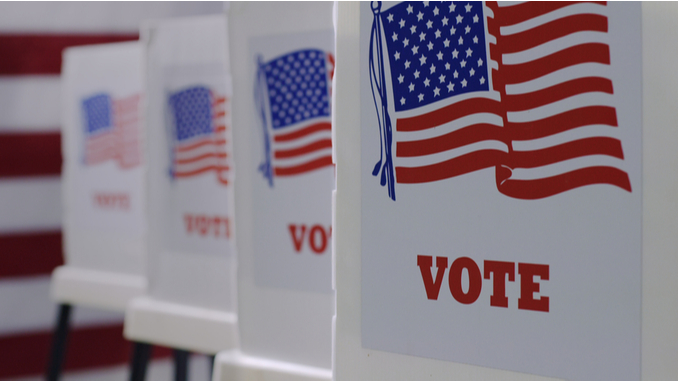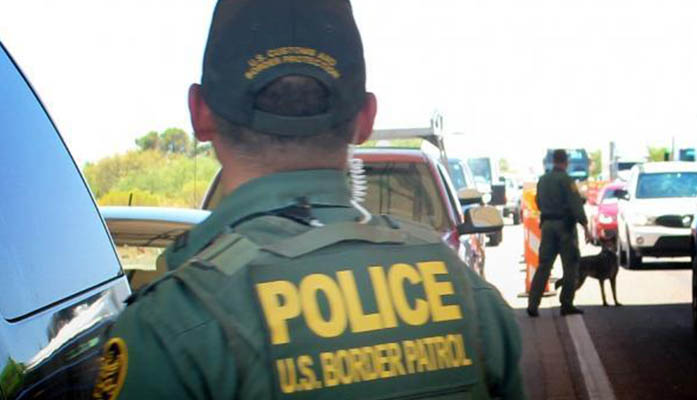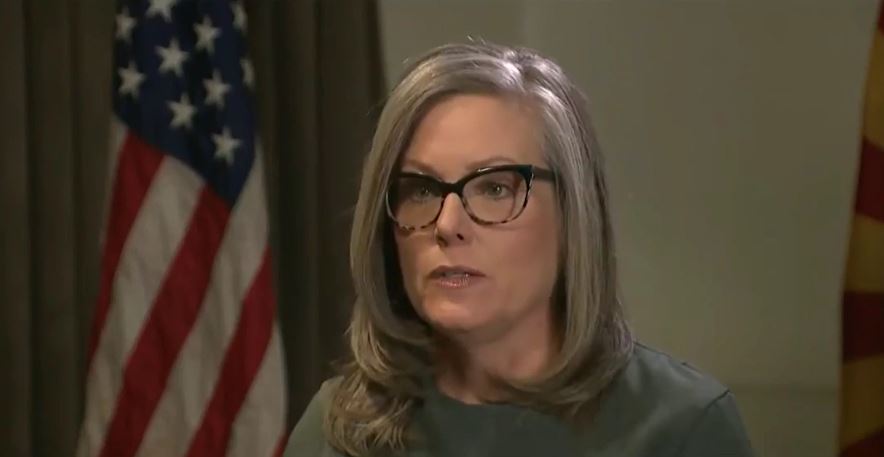
by Daniel Stefanski | Oct 3, 2024 | Economy, News
By Daniel Stefanski |
Last week, Arizona State Senator Shawnna Bolick issued a statement about economic calamities affecting families around her state.
Bolick said, “Since Kamala Harris and Joe Biden entered office, Arizona families have felt the weight of crippling inflation caused by their bad policies. In 2022, inflation hit its highest level in 40 years at 9%, and the price of every basic necessity skyrocketed. While the Federal Reserve reports inflation has since eased to near the target 2% threshold, and despite this month’s interest rate cut of 0.5%, conditions are not improving for hardworking Arizonans. Grocery store prices are 25% higher now than just before the pandemic. Homes are no longer affordable for our working class. Eviction filings have hit record highs in the Valley.”
Bolick added, “Republicans at the Legislature have made it our mission to lessen these burdens. We eliminated the tax renters pay on housing. We passed a ban on grocery taxes that sadly every Democrat voted against and the Governor vetoed. I vow to continue fighting for policies that will allow you to keep more of your money next legislative session.”
Last year, Arizona Governor Katie Hobbs signed SB 1131, which Republicans led through the state legislature. This legislation eliminated the rental tax for Arizona tenants.
According to Arizona Senate Republicans, “There are approximately 70 municipalities within our state charging this tax, while cities and towns continue to collect record revenues. From fiscal years 2019 to 2023, state-shared revenues from both sales and income taxes combined grew $733 million, or 59%. This increase is on top of any sales taxes or property taxes individually levied by each city. Between FY 2024 and FY 2025, those shared revenues are expected to grow by an additional $389 million.”
Senate President Warren Petersen issued the following statement in conjunction with the announcement: “Charging a rental tax is bad tax policy. In fact, Arizona is one of only two states in the nation currently allowing this. While our first attempt at eliminating the tax passed out of the Legislature with solely Republican support and was eventually vetoed by the Governor, we’re grateful our Democrat colleagues came to the table with us and realized the real tangible relief this reform will provide.”
Earlier that session, Hobbs vetoed SB 1063, which would have repealed the food municipal tax across the state.
After the governor’s action against the Republican proposal, Senate Majority Leader Sonny Borrelli said, “This veto is a disgraceful windfall for cities and an absolute gouge for families. We’re not only paying inflated prices to feed our families, but we’re also paying more in taxes as the cost of food rises. Food is not a luxury; it is a necessity. A tax on our groceries is regressive and hurts everyone. Over the next four fiscal years, cities and towns are estimated to receive an average of $2.3 billion per year in state-shared revenues, which is an increase of $844 million more than the average for the last four fiscal years. And yet the governor vetoed this bill, only padding cities’ bloated budgets instead of leaving more money in the wallets of hardworking taxpayers.”
Senator Bolick faces a tough General Election fight in November for her bid to return to the Arizona Legislature for another two years. Arizona Legislative District 2 is one of the most competitive in the state, with a 3.8% vote spread in the past nine statewide elections. It is very winnable for Republicans, however, as the party has emerged victorious in six out of those nine elections.
Daniel Stefanski is a reporter for AZ Free News. You can send him news tips using this link.

by Daniel Stefanski | Oct 1, 2024 | News
By Daniel Stefanski |
The nation’s Border Patrol union is throwing the red flag on Vice President Kamala Harris’ trip to the border late last week.
On Friday, Harris visited the border in Douglas, Arizona. After her stop, she posted, “As Attorney General of California, I prosecuted transnational criminal organizations that trafficked guns, drugs, and human beings. I know the importance of safety and security, especially at our border. Today, I visited the U.S.-Mexico border and spoke with Customs and Border Protection officials about our progress to secure our border and disrupt the flow of illegal fentanyl into our nation.”
The National Border Patrol Union (NBPC) took exception with many of Harris’ statements on this trip as well as the motivation for her visit. The NBPC “X” account stated, “Vice president Harris has ignored the border problem she created for over three years. She goes down there for 20 minutes for a photo op and decides to repeat some of the things the NPBC has said before. But again, where has she been the last 3 ½ years?”
Former President Donald J. Trump also weighed in on Harris’ visit, saying on Truth Social, “Comrade Kamala Harris, who allowed almost 14,000 MURDERERS to freely and openly roam our Country, is now making a Speech in Douglas, Arizona, trying to say she did an OK job with the Border. She didn’t! She is the Worst Vice President in History, and the Worst Border Czar in History, and people are dying every day because of her. SHE HAS GOT BLOOD ON HER HANDS!”
Before Harris touched down in Arizona, Art Del Cueto, the Vice President of the NBPC, opined on the Vice President’s upcoming trip to the U.S.-Mexico border. On his Instagram account, Del Cueto shared a picture of the border wall in Douglas, Arizona, not far from where the Vice President and Democrat nominee for President of the United States toured on Friday, saying, “This is the border in southern Arizona. This is where the wall stopped because the current administration did not want it to continue. This is where our tax dollars are sitting on the side because the current administration did not care enough about Americans to secure borders. This is where President Trump built the wall during his administration to protect American lives. This is where President Trump will finish the wall so it can continue to be used as a deterrent along with policies and help protect our country.”
Del Cueto added, “This is also not the area where vice president is going to visit because she would have to face the reality that she is part of the chaos we continue to see and she is also part of the administration that stopped building a deterrent that would help our country.”
Harris’ visit to the border marked the first time she has experienced the Arizona section of the international boundary in person as Vice President. A few years ago, Harris visited the border in the El Paso Sector.
In April 2021, then-Arizona Attorney General Mark Brnovich sent a letter to Harris, inviting her to the southern border. He told Harris that this tour would “provide firsthand insight into what Arizonans, law enforcement officials, and migrants are experiencing.” According to Brnovich, this invite went unanswered by the newly minted Vice President, who had served with him as a fellow attorney general from the State of California.
A little more than a month after this initial communication, Brnovich wrote to President Biden about Harris ignoring his invitation, requesting “that she be replaced as [his] ‘border czar.’” He said, “We are now nearly 50 days into her appointment, and Vice President Harris has shown little interest in observing what is happening along the border and has failed to articulate any plan to deal with the devastating effects of this crisis. Instead, she has traveled to other states for unrelated and less-pressing matters. Mr. President, this is a slap in the face to Arizonans who helped elect you both to the highest offices in the land.”
Mark Dannels, the Arizona sheriff for the region of the border that Harris traveled to, had also implored Harris to visit his county to see firsthand the problems that her administration’s policies have caused for communities in the state and elsewhere in the country. He told another Arizona media outlet last month that “it’s very important that [Harris] comes here. Because for three-and-a-half-years, we haven’t seen prioritization, acknowledgment or engagement with Vice President Harris or President Biden.”
Dannels then stated, “For her not to come in the next 78 days … sends a very strong message.”
Daniel Stefanski is a reporter for AZ Free News. You can send him news tips using this link.

by Daniel Stefanski | Sep 30, 2024 | News
By Daniel Stefanski |
An Arizona thinktank has released its ballot guide for local and statewide propositions facing voters in the November General Election.
Last week, the Common Sense Institute Arizona issued a ballot guide for a number of local and statewide propositions. The report analyzes Scottsdale Proposition 490, Glendale Proposition 499, Proposition 138, and Proposition 312.
“In a year where many Arizonans will face the longest ballot in recent history, CSI is pleased to provide this resource on some of the statewide and local ballot questions that have economic implications,” said Katie Ratlief, Executive Director of the Common Sense Institute. “CSI strives to be a go-to resource for voters looking for just the facts, data, and impact on jobs. We hope this resource will be helpful to voters in making informed decisions in 2024.”
The summary of Scottsdale Proposition 490, according to CSI, is that it “would enact a new transaction privilege and use tax at a rate of 0.15% to fund city parks and preserves.” CSI’s bottom line for Prop 490 is as follows: “Given the local nature, small size, and offsetting public spending of the proposed tax, its economic impacts are difficult to model and probably small. Given clarification that this is a new tax, city voters must decide whether a new $30 million annual sales tax is needed to maintain and protect its popular parks and preserves within the larger context of the total city budget.”
The summary of Glendale Proposition 499, according to CSI, is that it “would enact a $20 minimum wage for certain hotel and event center workers, set limitations on the amount of square feet a room attendant can clean before earning twice the hourly wage rate, require service charges to be distributed directly to the person performing the service, and establish a new City Department of Labor Standards.”
CSI’s bottom line for Prop 499 is as follows: “Ultimately, if enacted, the Act would have dramatic implications for the city of Glendale and its economy. Though the implications would play out over time, rather than immediately, the results would be stark. Glendale is long, thin, and surrounded by the state’s urban core. The assets it has invested in — like State Farm Stadium — may be fixed, but other event and accommodation facilities could easily relocate outside of Glendale and still be within a mile or two of major landmarks.”
The summary of Proposition 138, according to CSI, is that it “will modify the minimum wage credit for tipped workers in the state through a constitutional amendment from $3/hr to 25% of the current state-wide minimum wage amount so long as the individual makes at least $2 above the state-wide minimum in wages and tips combined. CSI estimates the 25% offset in Prop 138 would be $3.69/hr in 2025.”
CSI’s bottom line for Prop 138 is as follows: “By lowering labor costs for certain tipped workers in the Arizona economy, the state’s minimum wage tipped worker credit supports a higher overall level of employment in these industries than would happen otherwise. The current fixed dollar credit both declines in relative value over time (when the minimum wage is increased) and is vulnerable to changes when the minimum wage itself is changed (since it is a part of state law).”
The summary of Proposition 312, according to CSI, is that it “would allow property owners in the state to apply for a property tax refund if the city or locality in which the property is located does not enforce laws or ordinances regarding illegal camping, loitering, obstructing public thoroughfares, panhandling, public urination or defecation, public consumption of alcoholic beverages, and possession or use of illegal substances.”
CSI’s bottom line for Prop 312 is as follows: “Property crime, illegal camping, the public use of drugs and alcohol, and other public nuisances are on the rise in Arizona. The impact of this is disproportionate, however — the problem is often isolated to specific areas. While this can limit the exposure of the city as a whole to the issue, for property owners in these areas, the impacts can be significant if the issue isn’t mitigated.”
The ballot guide also includes a number of key facts for each proposition that allows voters to obtain more information and context as they research the reasons and importance of the measures.
Daniel Stefanski is a reporter for AZ Free News. You can send him news tips using this link.

by Daniel Stefanski | Sep 29, 2024 | News
By Daniel Stefanski |
Federal agents at the border were busy earlier this month to stop dangerous drugs from escaping into American communities.
On September 23, Nogales Customs and Border Protection (CBP) Area Port Director Michael W. Humphries announced that his port of entry had seized more than 1.5 million fentanyl pills over four days at the start of the month.
According to Director Humphries, the pills were discovered and apprehended on September 5 (approximately 527,000 pills in a car), September 6 (approximately 1,000,000 pills in a car), and September 8 (approximately 55,000 pills in a car battery).
Just days after these seizures, Humphries revealed that his officers had encountered over 341 pounds of illegal meth on a rail box car.
In Fiscal Year 2024, the Tucson CPB Field Office and Tucson Sector have interdicted more than 30,000 pounds of fentanyl, with one month left in the twelve-month calendar. Last fiscal year, over 25,000 pounds of fentanyl were apprehended in that section of the border.
These seizures are only a fraction of the drugs escaping detection from law enforcement into communities all across the nation. In 2022, The Washington Post published an article about the proliferation of fentanyl from Mexico to the United States, citing estimations from unnamed federal drug agents that “they are seizing 5 to 10 percent of the drugs coming from Mexico – if that much.” The article also stated that “agents say it has been nearly impossible to stop fentanyl trafficking” at the border.
Daniel Stefanski is a reporter for AZ Free News. You can send him news tips using this link.

by Daniel Stefanski | Sep 28, 2024 | News
By Daniel Stefanski |
The Hobbs Administration is again under political fire for alleged conflicts of interest.
This week, Arizona State Senator T.J. Shope, the Senate President Pro Tempore, issued a statement to announce the recent conclusion of an administrative law judge that “the Arizona Health Care Cost Containment System (AHCCS) improperly awarded contracts for healthcare services for 26,000 elderly and physically disabled individuals enrolled in the Arizona Long Term Care System.” According to the release from Senator Shope, the “determination was based on several factors, including violations of statutes and rules by AHCCCS, prejudice, a lack of transparency, contract awards based on best interests of the agency and not the state, an arbitrary and flawed ranking system of bid proposals, as well as deceptive criteria provided by AHCCCS to health care companies on the evaluations of their bid proposals.”
Shope revealed that “while the judge recommended cancellation of the procurement and issuance of a new request for bid proposals, AHCCCS announced this month it would not do so, and instead, would delay the transition to the newly awarded health plans by one year, commencing in October of 2025.”
In a statement, Shope said, “I’m deeply disturbed by what’s transpired under the Hobbs Administration, from the Sunshine Residential pay-for-play scheme, to now this procurement scandal. The integrity of state government and its spending practices have been compromised. As chairman of the Senate Health & Human Services Committee, it’s my goal to get to the bottom of these disputes and determine whether in fact preferential treatment is being provided using the tax dollars of hardworking Arizonans, and whether our citizens who rely on these critical services are being protected.”
The Senate Republican leader added, “I will be on a fact-finding mission in the coming months and will determine the best course of action to address these cases, whether through legislation, or other legal avenues.”
Earlier this year, The Arizona Republic broke a story about the Arizona Department of Child Safety “approv[ing] what amounts to a nearly 60% increase in the rate that Sunshine Residential Homes Inc. charges to care for a child for a day.” The alleged action to approve the rate increase for the one organization was made while “DCS has denied pay increases to home operators and cut loose 16 providers during the contract renewal process.” The Republic also asserted that “no other standard group home provider was approved for any rate increase during Hobbs’ tenure.”
After the story ran in the Republic, Shope sent a letter on June 5 to both Attorney General Kris Mayes and Maricopa County Attorney Rachel Mitchell, asking both officials to “examine the facts surrounding the Department of Child Safety’s alleged decision to approve a nearly 60% rate increase for Sunshine Residential Homes and determine if conduct by any of the involved parties warrants a criminal or civil investigation.”
State Representative Matt Gress followed up with a letter on June 6 to Mitchell, letting her know that “the Auditor General’s Office stands ready to partner with you in getting the facts about this troubling matter,” and that the Joint Legislative Audit Committee “will allocate the resources the Auditor General needs to help restore what appears to be a major breach of trust in our government.”
That day (June 7), Mayes fired off two letters to both Mitchell and the Arizona Auditor General, Lindsey Perry, over the investigation. Mayes told County Attorney Mitchell that “it would not be appropriate or in the best interest of the state to conduct parallel investigations into the same matter,” and that “a separate process conducted by the MCAO could jeopardize the integrity of the criminal investigation that my office will now proceed with.”
Mayes similarly told Auditor General Perry that “while [the Auditor General’s] office is statutorily authorized to examine records and conduct audits at the direction of the Joint Legislative Audit Committee, at this time, the assistance of [her] office is not needed by the Attorney General’s Office for our investigation.”
After the letters from Mayes, Arizona State Treasurer Kimberly Yee sent a letter to Maricopa County Attorney Rachel Mitchell, requesting “that [she] investigate the allegations that have occurred in [her] jurisdiction.” Yee also delivered a letter to Arizona Attorney General Kris Mayes, highlighting that the state’s top cop’s assertion that her office had singular control over any investigation “is not appropriate or authorized by law, as those entities have separate jurisdiction to investigate this matter.”
After receiving the letters from Senator T.J. Shope and Gress, County Attorney Mitchell informed them that her office was “contacted by the Arizona Auditor General asking that the Maricopa County Attorney’s Office serve as the prosecution office that will work with them while they conduct an investigation into this matter.”
Daniel Stefanski is a reporter for AZ Free News. You can send him news tips using this link.





